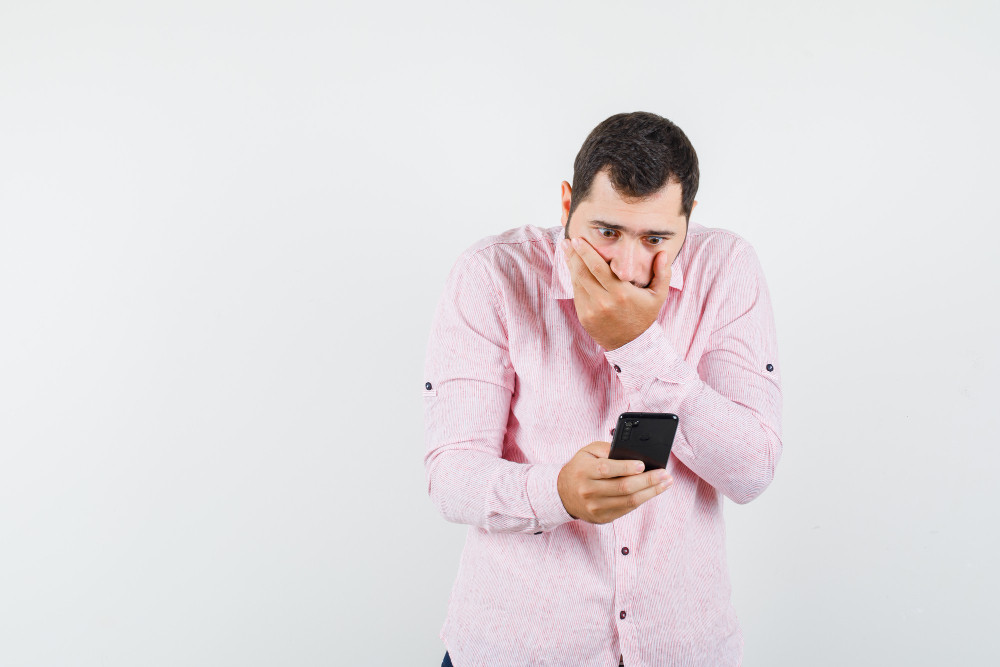With easy internet access, anyone can look up symptoms, first-aid treatments, and effective home remedies for treating illnesses. However, in addition to the convenience that the internet provides, reading information about one's health condition can cause excessive anxiety. This condition is referred to as cyberchondria.
What is cyberchondria?
Cyberchondria is a condition similar to hypochondriasis in which a person experiences excessive and unreasonable anxiety that they may have a serious illness, despite medical examinations indicating otherwise.
The term cyberchondria itself is not an official term, and it does not appear in the Diagnostic and Statistical Manual of Mental Disorders. This term refers to the development of hypochondriasis, a DSM-5 diagnosis.
People with cyberchondria or hypochondriasis experience anxiety and exaggerated reactions when their bodies exhibit certain symptoms. They become extremely concerned about their health. This is caused by the habit of looking up symptoms and treatments for a specific disease. They cannot dismiss the possibility that they have a disease, even if it has not been confirmed by medical professionals.
Frequently, this condition leads to the self-diagnosis of a dangerous disease. According to experts, while this condition does not have an official name, it is widely experienced by the public and frequently occurs without being noticed.
Signs of cyberchondria
People with cyberchondria generally experience fear due to their health condition. Some distinctive signs of this condition include the following:
- Spending hours online searching for information about a disease
- Feeling stressed, depressed, and anxious after reading a lot of health information
- Being afraid of having multiple diseases, not just one or two
- Feeling the need to seek reassurance from a doctor but not trusting the answers given by the doctor
- Feeling the need to repeatedly check your symptoms 4-5 times or more, even after searching for information
According to research, searching for health information online may increase the risk of developing anxiety issues. Cyberchondria is not a dangerous condition, but this behavior can trigger the risk of someone trying to diagnose and treat themselves. This can lead to medication misuse.
Causes and risk factors of cyberchondria
Although the exact cause of someone experiencing anxiety due to their illness is unknown, there are several factors that contribute to someone experiencing such anxiety, such as:
- Lack of knowledge about health, symptoms, diseases, or all of them. When someone experiences an unusual symptom in their body, they may think they have a serious illness. This behavior causes someone to seek evidence confirming that they may have a serious illness, even though they may actually be normal
- Having family members or relatives who have excessive concerns about their health
- Experienced a serious illness in childhood or seeing close relatives suddenly develop a serious illness, making them easily worried about their health condition
- Having a personality that is prone to being anxious or worried
With the advancement of online information, including easily accessible health information, people are increasingly preferring to browse about their conditions rather than consult with a doctor.
Cyberchondria management
If you feel worried and anxious about the health information you obtained, you should pause your search for a moment. Excessive obsession can cause anxiety, and it can also be dangerous if the information you read is not accurate and reliable.
When searching for health information, it's important to carefully choose your sources. You can get information from government health websites, reputable institutions like WHO or CDC health sites, or health journals. With the advancement of technology, you can now consult directly with doctors using health apps.
Searching for information about health issues is a normal and simple process. However, if this condition triggers excessive anxiety to the point where it interferes with your daily life, you should seek medical help to manage the anxiety and stress you are experiencing.
If you need medical advice or consultation, you can either visit a doctor or make use of the consultation features that are available in the Ai Care application by downloading the Ai Care application from the App Store or Play Store.
Looking for more information about other diseases? Click here!
- dr Hanifa Rahma
Rowe, S. (2021). What is cyberchondria? Available from: https://psychcentral.com/anxiety/cyberchondria#causes.
Mathes, B. M., Norr, A. M., Allan, N. P., Albanese, B. J., & Schmidt, N. B. (2018). Cyberchondria: Overlap with health anxiety and unique relationships with impairment, quality of life, and service utilization. Psychiatry research, 261, 204–211. https://doi.org/10.1016/j.psychres.2018.01.002.
Cirino, E. (2018). Health anxiety (hypochondria). Available from: https://www.healthline.com/health/health-anxiety.
NHS. Health Anxiety. Available from: https://www.nhs.uk/mental-health/conditions/health-anxiety/.
University of Vermont Health Network. Available from: https://www.uvmhealth.org/healthsource/cyberchondria-could-you-have-it.











